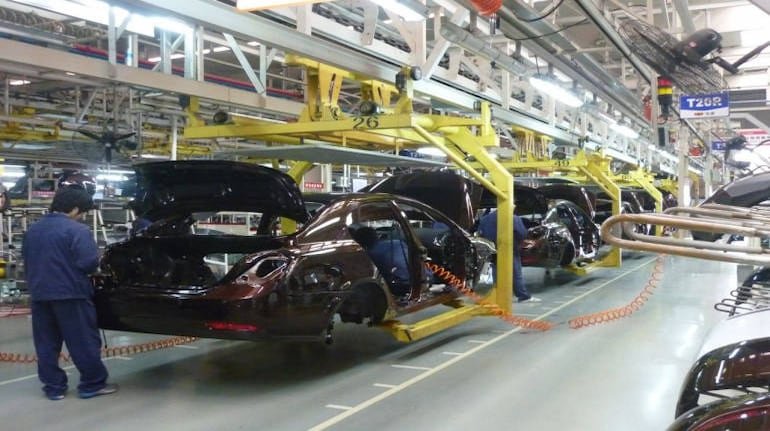The report will come handy in resolving the borrowing related issues of the sector and financing of technology investments for the industry, say industry insiders
Weighed down by the COVID-19 pandemic-induced slowdown, automotive and allied sector companies welcomed the loan restructuring parameters approved by the Reserve Bank of India (RBI) based on the recommendations of the K V Kamath Committee.
Vehicle manufacturing companies, automotive component making companies and automotive dealerships are part of the 26 sectors selected by the committee whose financial ratios are outlined.
“Good recommendation for the industry but implementation is key," replied a chief financial officer of one of India’s top three automakers to a query from Moneycontrol. “Most of the vehicle manufacturers are financially stable. This will benefit the component and dealerships sector more," added the executive.
For the first time in history sales and production of the auto sector came to naught for more than 40 days in March and April when the country undertook strict lockdown measures to control the spread of coronavirus.
related news
-
Doctor's prescription not mandatory for COVID-19 testing in the national capital, says Delhi HC
-
Kamath Committee report | Tourism industry welcomes recommendations, but fears meeting thresholds will be challenging
-
Opening places of worship with guidelines not practical: Maharashtra govt tells Bombay HC
This crippled the economic cycle and disrupted the working capital flow forcing companies to raise funds from external sources during the past few months.
Deepak Jain, president, Automotive Components Manufacturers Association (ACMA), said, “The auto-components sector dominated by small and medium enterprises, witnessed severe hardships on the front of cash flow and working capital during the lockdown period. The report will come handy in resolving the borrowing related issues of the sector and financing of technology investments for the industry”.
In May, the government had altered the definition of the medium, small and micro enterprises (MSME), allowing several companies from the auto component sector to benefit from collateral-free automatic loans and the subordinate debt scheme.
“Considering the average asset life in the industry to be around 10 years, we recommend the committee to enhance the ‘Total Debt/EDITDA ratio’ to 6 times from the current 4.5 times, the premise of repaying loans in 4.5 years for assets that will last over double the time needs to be reconsidered. Further, considering the cost of borrowing capital in India is one of the highest in the world, we request the committee to recommend lending to the auto component industry at the same interest spread as priority sector, to secure the industry from any downgrade in ratings due to the adverse impact of COVID-19 related disruptions," added Jain.
The Society of Indian Automobile Manufacturers (SIAM), the apex lobby body of the vehicle manufacturers, has been intensely lobbying for a cut in Goods and Service Tax (GST) rates to push up retail demand. It recently suggested a plea to postpone the emission norms which are slated to come into effect in 2022.
SIAM did not offer any comments immediately on the RBI acceptance of the Kamath Committee recommendations, but said it "may issue a statement later".
Auto dealers
The automotive dealership sector was one of the most stressed sectors even before it got impacted by the COVID-19 pandemic. More than 300 dealerships were shut down permanently in the last financial year. Some automakers extended a direct financial aid to their dealer partners in the form of loans and advances during the last three months.
Vinkesh Gulati, president, Federation of Automobile Dealers Associations (FADA), said, “FADA has been interacting regularly with the RBI and Industry Monitoring Group for restructuring support. The economic fallout on account of the Covid-19 pandemic has led to significant financial stress for auto dealers. The resultant stress can potentially impact the long-term viability of dealerships.”
“The recommendations of the report will benefit only a small section of dealerships as we normally have current ratio of 0.8 - 0.9, due to the already two year distress we have seen. Hence, the ratio suggested as 1 will be a difficult parameter. Nevertheless, we wholeheartedly welcome this move," added Gulati.








